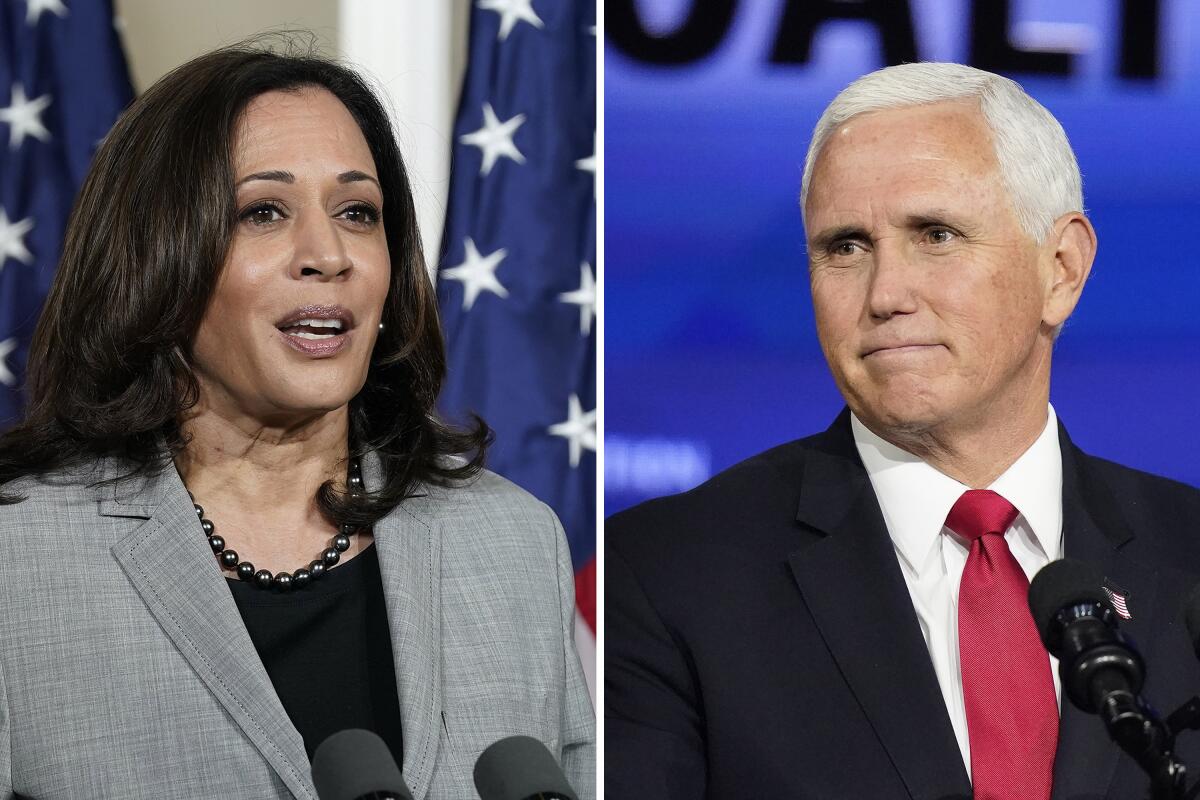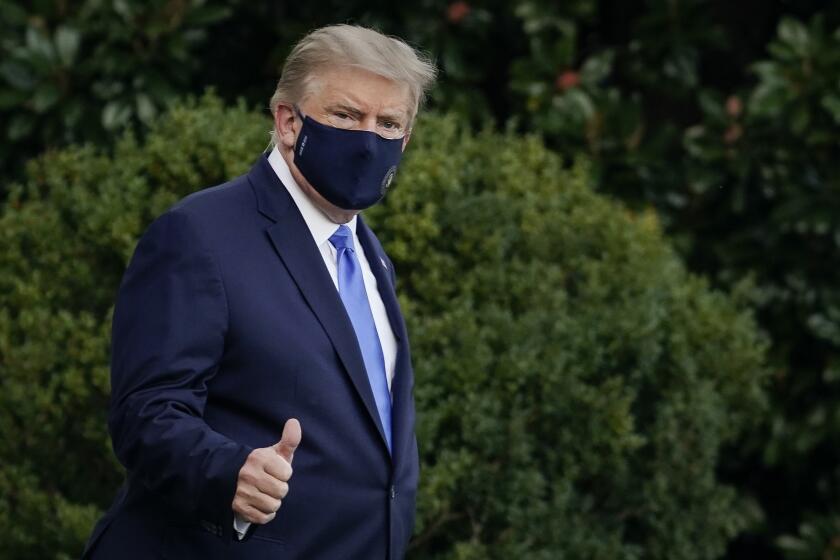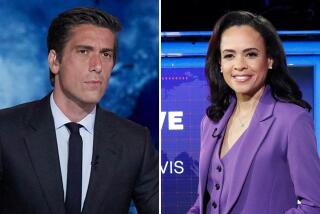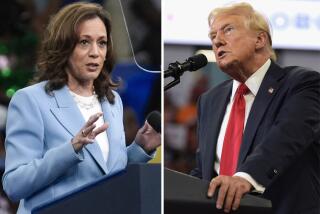Pence and Harris to debate through plexiglass because of coronavirus concerns

- Share via
Vice President Mike Pence and California Sen. Kamala Harris will debate Wednesday separated by plexiglass shields, one of a handful of changes debate officials are making in response to concerns about COVID-19.
President Trump was hospitalized after falling ill late last week. Pence met with the president in the Oval Office two days before Trump tested positive for the coronavirus.
The Commission on Presidential Debates met virtually for two hours Monday over concerns about the vice presidential debate in Salt Lake City. Calls from political observers and health experts to postpone the meeting or to hold it virtually grew as a growing number of Republican elected officials, White House staffers and others who had contact with the president and Pence also tested positive.
The commission had already decided to increase the space between the two officials, from seven to 12 feet, during the seated event, the only time the candidates will debate before Nov. 3.
On Monday, after a Biden-Harris campaign request and updated guidance by the Centers for Disease Control and Prevention about airborne COVID-19 transmission, the commission agreed to separate the candidates from each other and from moderator Susan Page of USA Today.
“There will be a plexiglass divider between the two candidates, and the candidates and the moderator,” said Frank J. Fahrenkopf Jr., chairman of the independent, nonpartisan debate commission. “The Trump campaign agreed to that so long as we don’t surround Vice President Pence all the way around. He doesn’t want to be in a box.”
When President Trump said he had tested positive for the coronavirus, he became ground zero for the most high-profile contact-tracing effort of the pandemic.
The commission also decided to have its medical advisors talk with the campaigns’ physicians to make sure the candidates are tested before the debate, and to remove any person who takes off their face mask in the debate hall. These two changes were driven by uncertainty about when Trump was tested before the first presidential debate in Cleveland last week and his family members taking off their masks once they took their seats in the debate hall.
“You must pass the test, you must wear a mask, and if you remove the mask once you’re inside, you’ll be escorted from the room,” Fahrenkopf said. “No exceptions.”
A Pence spokesman said the vice president last tested negative Monday morning and referred other questions to a comment made by a colleague earlier. On the debate, Pence spokeswoman Katie Miller told Politico, “If Sen. Harris wants to use a fortress around herself, have at it.”
A Harris spokeswoman responded by referring to Pence’s role as the leader of the White House Coronavirus Task Force.
“Interesting that @VPComDir Katie Miller mocks our wanting a plexiglass barrier on the debate stage, when her own boss is supposedly in charge of the COVID-19 task force and should be advocating for this too,” Harris spokeswoman Sabrina Singh tweeted.
Monday night, Trump, 74, left Walter Reed National Military Medical Center, where he received experimental drugs. His doctors said they won’t know for a week if he is fully recovered. Some public health experts have suggested that Pence should quarantine, but the Trump administration released a memo from the White House physician stating the vice president was “free to go about his normal activities.”
The future for the next two presidential debates is uncertain.
A town hall scheduled for Oct. 15 in Miami is up in the air, depending on whether Trump is well enough to travel. The final debate, which has the same format as the first, is set for Oct. 22 in Nashville; however, debate planners may enact rules to curb the maelstrom that erupted during Trump and Biden’s first meeting, when the president refused to follow the rules his campaign had agreed to and repeatedly spoke over Biden and moderator Chris Wallace.
“The final debate will mirror the first debate, where we had problems,” said Fahrenkopf, who previously served as the leader of the Republican National Committee. “We haven’t made a decision considering a lot of things. Everything’s on the table, let me put it that way.”
More to Read
Get the L.A. Times Politics newsletter
Deeply reported insights into legislation, politics and policy from Sacramento, Washington and beyond. In your inbox three times per week.
You may occasionally receive promotional content from the Los Angeles Times.












